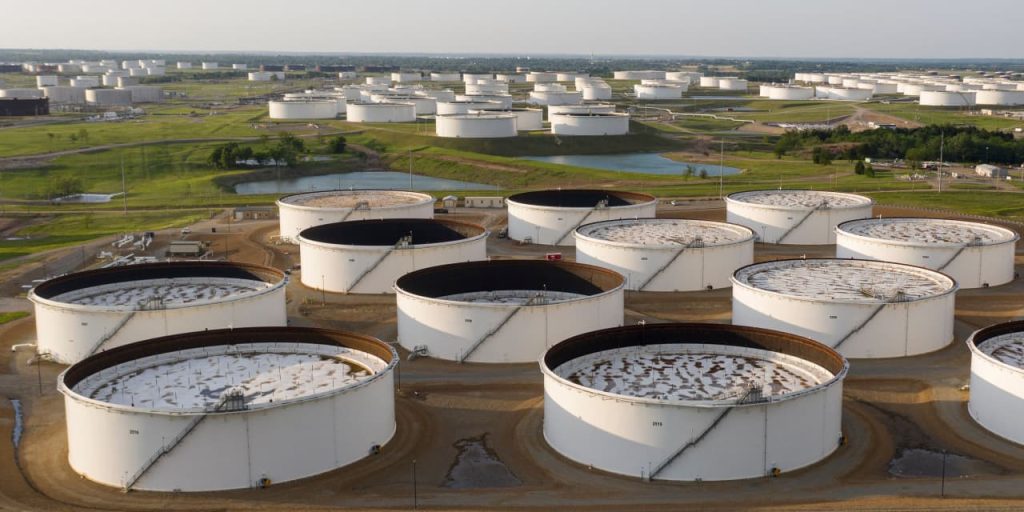Oil futures tallied a third straight climb on Wednesday, buoyed by tensions in the Red Sea that have led to disruptions to global trade.
Meanwhile, data from the U.S. government revealed weekly increases for domestic crude and petroleum-product supplies.
Price action
-
West Texas Intermediate crude for February delivery
CL.1,
+0.49% CL00,
+0.49% CLG24
edged up by 28 cents, or 0.4%, to settle at $74.22 a barrel on the New York Mercantile Exchange. -
February Brent crude
BRN00,
+0.45% BRNG24,
the global benchmark, added 47 cents, or 0.6%, at $79.70 a barrel on ICE Futures Europe after trading as high as $80.60. Brent and WTI oil each saw their highest finish since Nov. 30. -
January gasoline
RBF24
settled flat at $2.20 a gallon, while January heating oil
HOF24
shed 0.3% to $2.71 a gallon. -
Natural gas for January delivery
NGF24
settled at $2.45 per million British thermal units, down 1.8%.
Red Sea shipping woes
Several shippers have suspended shipments through the Red Sea after a series of drone and missile attacks by Iran-backed Houthi rebels since the start of the Israel-Hamas war.
Read: Attacks in the Red Sea add to global shipping woes
The actions by the Houthi rebels to “disrupt international shipping lanes are not only an act of war but also an assault on the global economy,” said Phil Flynn, senior market analyst at The Price Futures Group. While the U.S. is setting up an international coalition to try to stop the piracy, “the question becomes whether they will go after Iran.”
On Tuesday, the U.S. announced the launch of an international naval effort to thwart the attacks.
See: Inflation worries return after Red Sea shipping attacks
“For the oil trade, it is a wake-up call,” said Flynn, in a note. “Last month, the market declared that war premium was unnecessary, but we are seeing that war premium forced back into the price.”
Still, in a note, Marios Hadjikyriacos, senior investment analyst at XM, said that it’s “questionable” whether such concerns over the disruptions to global trade will manage to keep oil prices supported for long, “against the backdrop of slowing demand next year coupled with record-high U.S. crude production.”
The Year Ahead: Why oil may not see a return to $100 a barrel in 2024
Supply data
U.S. crude, gasoline and distillate supplies all climbed last week, according to data from the Energy Information Administration released Wednesday. Domestic petroleum production, meanwhile, marked a climb to another record high, based on EIA data going back to 1984.
Domestic commercial crude inventories rose by 2.9 million barrels for the week ended Dec. 15.
On average, analysts polled by The Wall Street Journal expected the report to show a climb of 2.5 million barrels. The American Petroleum Institute late Tuesday reported that U.S. crude inventories rose 939,000 barrels last week, according to a source citing the data.
The EIA report also revealed supply increases of 2.7 million barrels for gasoline and 1.5 million barrels for distillates. Analysts had forecast supply increases of 700,000 barrels each for gasoline and distillates.
Crude stocks at the Cushing, Okla., Nymex delivery hub rose by 1.7 million barrels last week, the EIA said, while domestic petroleum production moved up by 200,000 barrels a day last week to a record of 13.3 million barrels a day.
Read the full article here




